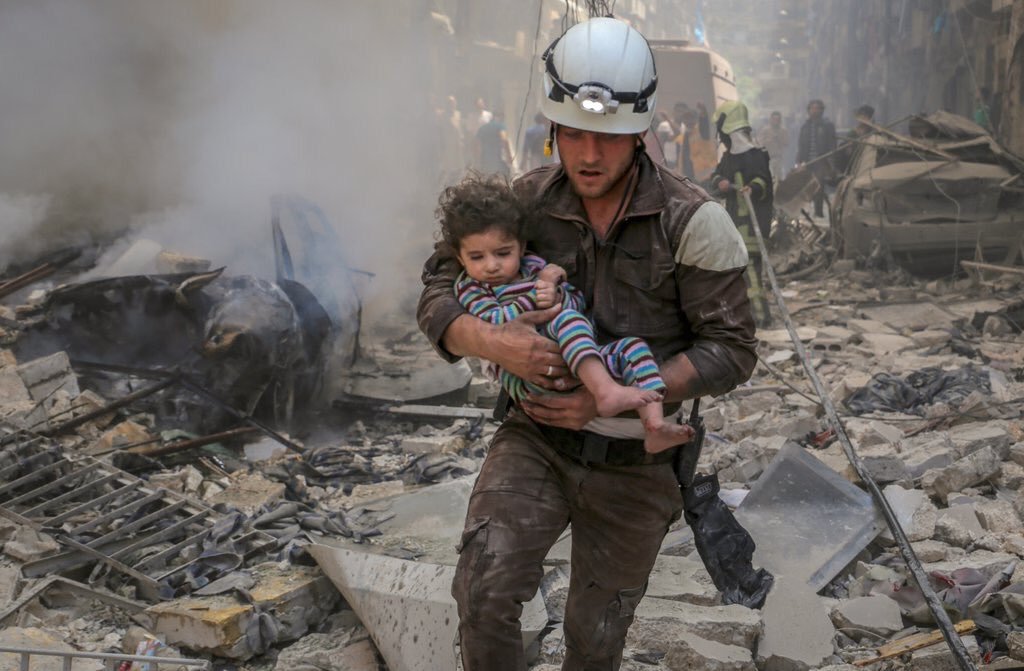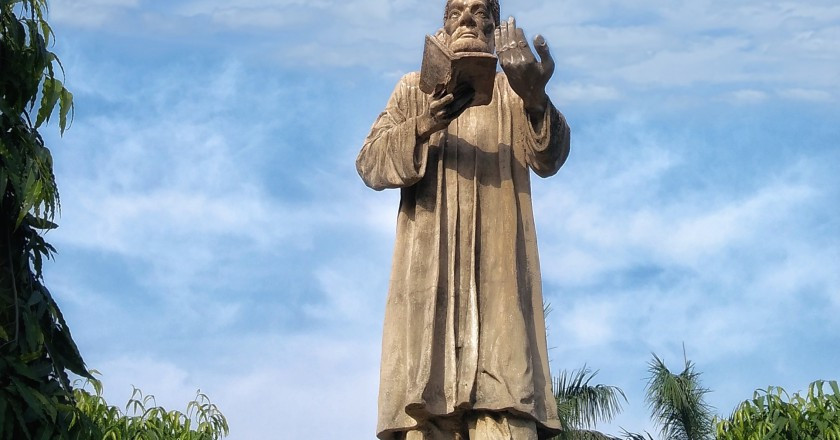A version of this article first appeared in The New Arab.
Following the Syrian regime’s recent chemical attack on Douma, US, Britain and France took swift but symbolic action to destroy three chemical weapons facilities. The action was not universally lauded. For Syrians it was too little too late; for isolationists and “anti-imperialists”, the 15,201st US airstrike on Syria since September 2014 was a “dangerous escalation” in a war where there were “no good guys”.
“There are no good guys”—or “everyone is equally bad”—has become a trope used by many otherwise decent people to absolve themselves of moral guilt for being bystanders to injustice. (The indecent on the other hand pronounce Assad the “lesser evil”, if not outright supporting him). The trope relies on a disciplined will to ignorance, unreasonable doubt, and manufactured uncertainty. It has been aided by a post-truth paranoia where cynicism passes for scepticism and all inconvenient facts expire into a haze of competing claims. “We can’t really know”!
But are facts really that elusive? And is it really impossible to tell good from bad?
Syria in fact is the most closely observed conflict in history, every aspect of which has been investigated, researched, filmed, documented, and reported on. The picture that emerges is not equivocal. In the judgment of the UN Commission of Inquiry on the war in Syria the regime is responsible for “the crimes against humanity of extermination; murder; rape or other forms of sexual violence; torture; imprisonment; enforced disappearance and other inhuman acts”.
Let us now look at the balance of atrocities.
Continue reading “Are there really “no good guys” in Syria?”





 Since I’ve started the Let’s Talk About Genocide series, over four years ago, the discussion around Israel in the context of the crime of genocide has grown substantially. And while many scholars, journalists, and human rights defenders have embarked on the arduous task of examining
Since I’ve started the Let’s Talk About Genocide series, over four years ago, the discussion around Israel in the context of the crime of genocide has grown substantially. And while many scholars, journalists, and human rights defenders have embarked on the arduous task of examining